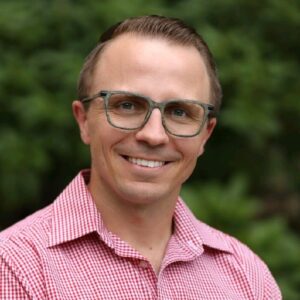Blue Circle Health, a nonprofit organization dedicated to improving the health of people with type 1 diabetes (T1D), today announced its expansion into Maine and Vermont. Adults with T1D in these states can now enroll in Blue Circle Health’s virtual T1D care, education and support program, at no cost to them. This is the first time Blue Circle Health’s services are available beyond Florida, where it has enrolled about 300 people with T1D since January 2024. The expansion marks a significant milestone in the organization’s goals to provide as many people with T1D as possible with the skills, tools and confidence to thrive, as well as to build a scalable T1D care model that addresses unmet needs.
Type 1 diabetes is a chronic autoimmune condition in which the body doesn’t produce enough insulin. Without insulin, blood sugar builds up in the bloodstream and can cause serious complications, including blindness, neuropathy, heart disease, kidney failure and even death. Only about one in four people with T1D in the US achieve the recommended blood glucose level (HbA1C <7%), and many face barriers to the care, education, medication, and supplies needed to manage their condition.
Barriers to optimal care include a shortage of endocrinologists, with only approximately 9,000 specialists for the 2 million people with T1D in the US., Primary care physicians provide a significant portion of care, but many report a lack of confidence in managing T1D. Other obstacles include the cost of insulin, low insurance reimbursement rates, and a shortage of integrated behavioral health and diabetes self-management education and support services.
“Blue Circle Health was founded to help fill the gap between the care people with T1D need and what is available through our health system,” said Leonard D’Avolio, PhD, chief executive officer of Blue Circle Health. “We’re thrilled to extend our program into Maine and Vermont, where it’s difficult for people with T1D to access expert care and support due to a limited number of endocrinologists and large rural populations. Whether it’s help with insurance, access to insulin, or learning to use blood glucose monitoring tools, by providing accessible care and education, we hope to empower people with T1D to gain more control over their condition. In time, we hope learnings from our program will help enhance T1D care more broadly.”
Blue Circle Health guides adults with T1D through its personalized program, which can last up to six months, depending on an individual’s unique T1D-related needs. Services are delivered via phone, text, and video, and include medical care, diabetes education and nutrition advice, peer support, diabetes supportive counseling, help getting and using insurance, financial assistance, and referrals to community resources that can help with access to housing, employment and food. It also offers a Prescription Assistance Program, which provides financial support for T1D medications and supplies, and a trial Continuous Glucose Monitor (CGM) Program, which provides free access to a device and education on how to use it to improve glucose control.
The program is designed to complement an individual’s existing care team, whether that includes a primary care doctor, endocrinologist or other healthcare worker. Blue Circle Health communicates regularly with participants’ care teams to ensure continuity of care and any necessary in-person care, screenings for diabetes complications and non-T1D concerns.
Blue Circle Health is funded by The Leona M. and Harry B. Helmsley Charitable Trust. It is committed to collaborating with local healthcare providers, patient advocacy groups, and health systems to improve care for people with T1D. The organization also plans to share outcomes and lessons learned as it continues to expand, including how to deliver the best care for people with T1D, and how its model may be replicated for other chronic conditions to improve health outcomes and reduce the burden on the US healthcare system.

